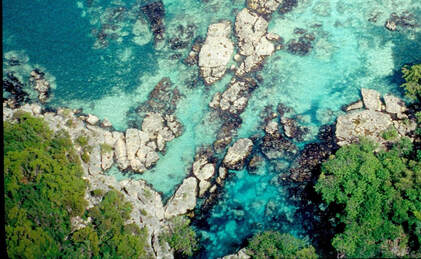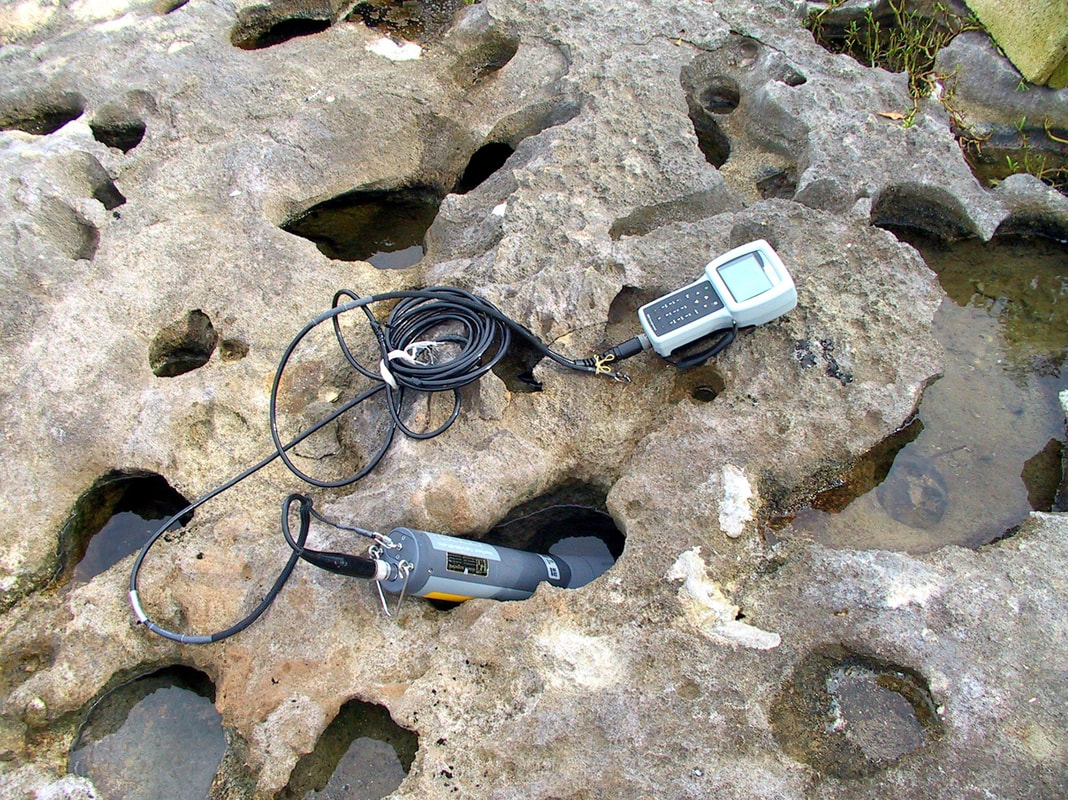 The data rescue intern: Siobhan Schenk The Long-term Rocky Tidal Community Data collected in Discovery Bay, Jamaica by McMaster University Professor Jurek Kolasa, and his many students every year from 1989 to 2006, is unique not only in the length of study and the richness of the microinvertebrates sampled, but also by the cultural enrichment opportunities provided to students that participated in the project.  The Long-term Rocky Tidal Community dataset is in existence today because of a couples trip to Jamaica Professor Kolasa took when he was first hired as an Assistant Professor at McMaster. During his walks, he noticed the diversity of local organisms, which prompted him to organize a field course. One year after his initial trip, he returned with the first group of students and teaching assistants. Himself and a teaching assistant noticed the rockpools for the first time and collected some samples. A few years later, the value of the data were clear, and Professor Kolasa secured NSERC funding for the project. These rockpools and the data collected from them are truly unique. Long-term monitoring studies are very rare in ecology, but if we contextualize the temporal duration of the study (1989 to 2006), this equates to around 500 generations of microinvertebrates in the rockpools! In addition, due to the low seasonal variation in Discovery Bay compared to Hamilton, ON Canada (where Jurek lives and works), the trends in organism abundance are clearly attributable to conditions in the pool, rather than broad seasonal variations. This allows Professor Kolasa to ask theoretical questions about biodiversity drivers, which is his main research interest. The Jamaican researchers at Marine Labs are leaders in coral reef monitoring and fisheries management in the region. Due to their work, the fishing industry in the region has decreased its overfishing and a broader network of smaller research stations are operational throughout the Caribbean. This rich research environment attracts students from all over the world, not only for the unique science that can happen at Marina Labs, but for the cultural experience as well. Through the courses Professor Kolasa organized, McMaster students were able to live at the station with other students from the University of West Indies, and experience the rich culture of Jamaica. Through the yearly trips to Jamaica, Professor Kolasa and his students have experienced many adventures including going to concerts that never happened, finding “unusual” packages on the side of the road, and enjoying local beverages (off the McMaster clock of course). The yearly surveys continued past 2006 but are currently on hold due to the COVID-19 pandemic. We hope that the science (and adventures) can resume in the near future! Comments are closed.
|
Archives
October 2023
Categories |

 RSS Feed
RSS Feed